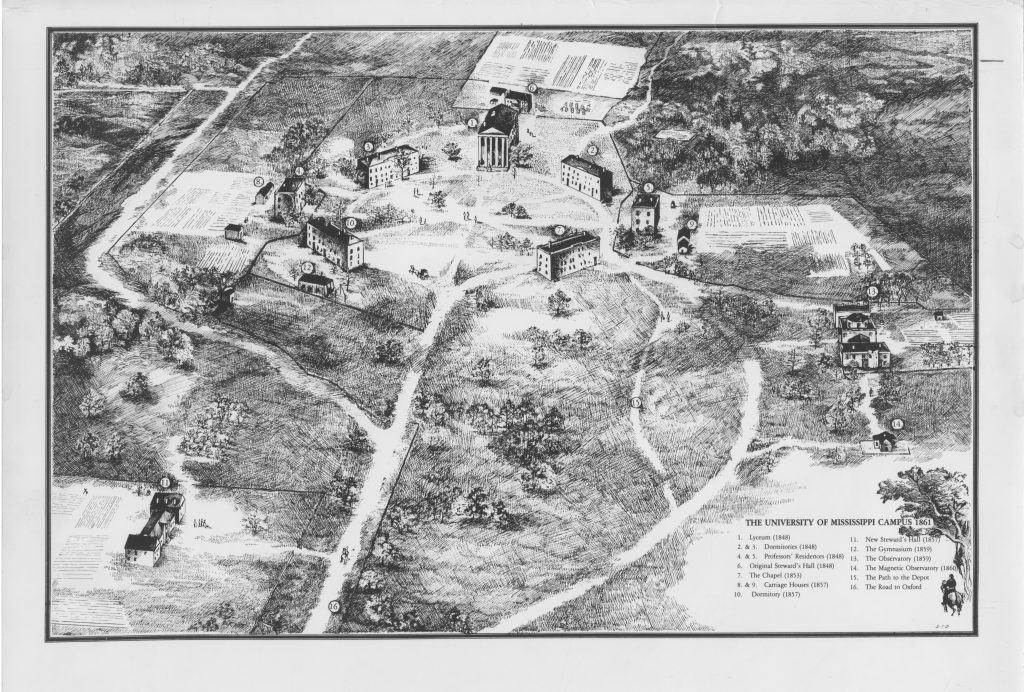Areas of Research
The University of Mississippi Slavery Research group seeks to uncover evidence about slavery and the lives of enslaved people at our institution as well as the surrounding community. Such evidence allows us to understand slavery at both the University of Mississippi and Lafayette County in a comparative framework that links our institution and region to global processes.
University of Mississippi
At our institution we are investigating:
The extent to which enslaved labor built the university
The extent to which enslaved labor facilitated the university
The relationship between slavery and the landscape
The proximate locations of slave quarters on campus
How rented or borrowed enslaved laborers were housed
How the enslaved laborers claimed by students, faculty, administrators, or staff were housed
The location and holdings of students’ families
The extent of slave-generated wealth among students’ families
The relationship between slavery and university operation
The extent of slave ownership among university trustees and administration
How slavery at the University of Mississippi compared to slavery at other institutions
Lafayette County
In the surrounding community we are investigating:
How land was used in the county
The extent to which enslaved labor contributed to county infrastructure
The demographic migration patterns that shaped the county
The migration of freedpeople and their settlement patterns
The geographic location of enslaved, freedpeople or freepeople cemeteries
How slavery in Lafayette County compared to slavery in other regions
Research Tools
Addressing these issues requires the examination of a diverse collection of extant records and, in some cases, the cultivation or creation of new sources of information. Our work relies upon:
The exploration of Board of Trustee Minutes, the Faculty Minutes, and other administrative records
The examination of student publications, the minutes of debating societies, etc.
The investigation of university and local newspapers
The study of federal and state census records
The exploration of church archives and records
The examination of county probate, estate, and asset records
The collection of oral histories
The creation of site file research on archeological projects or research post-1830
